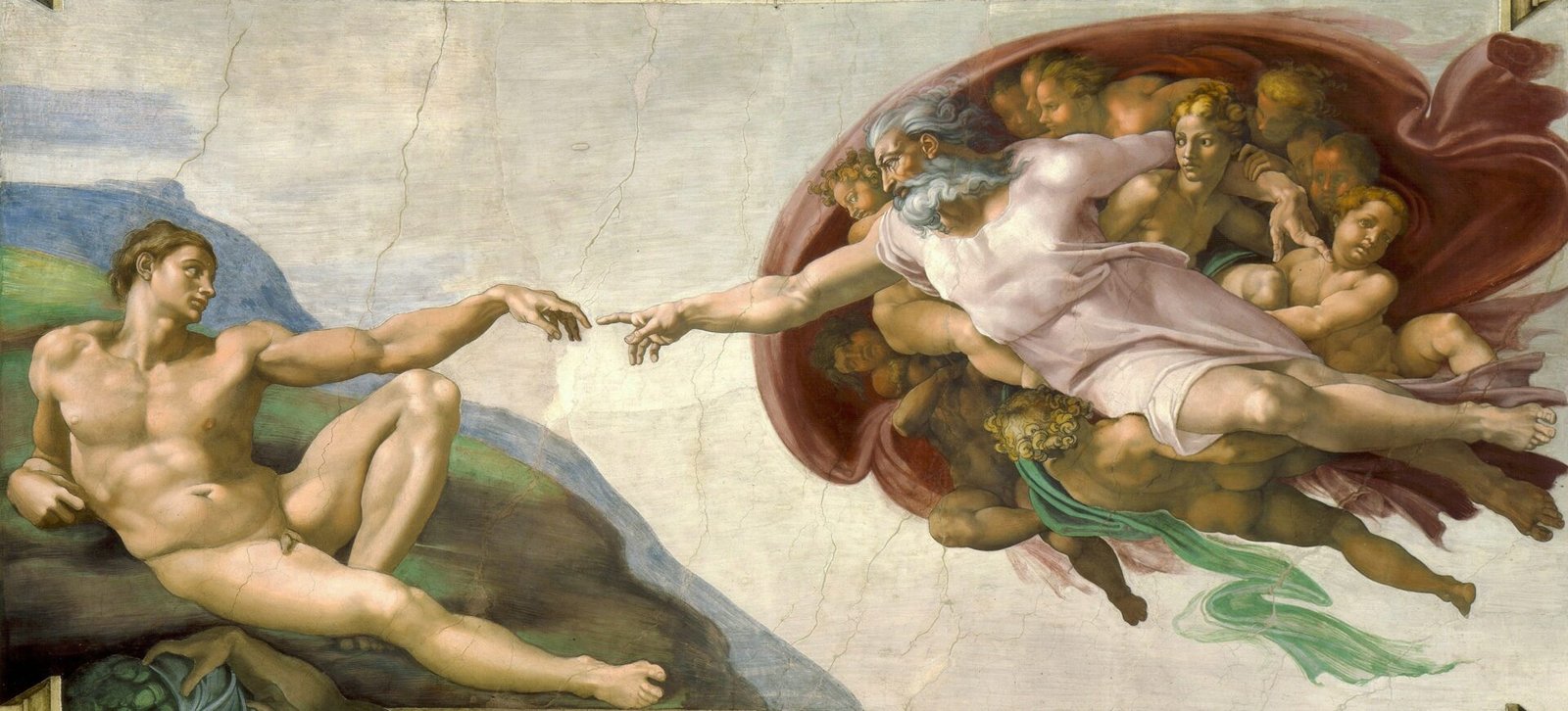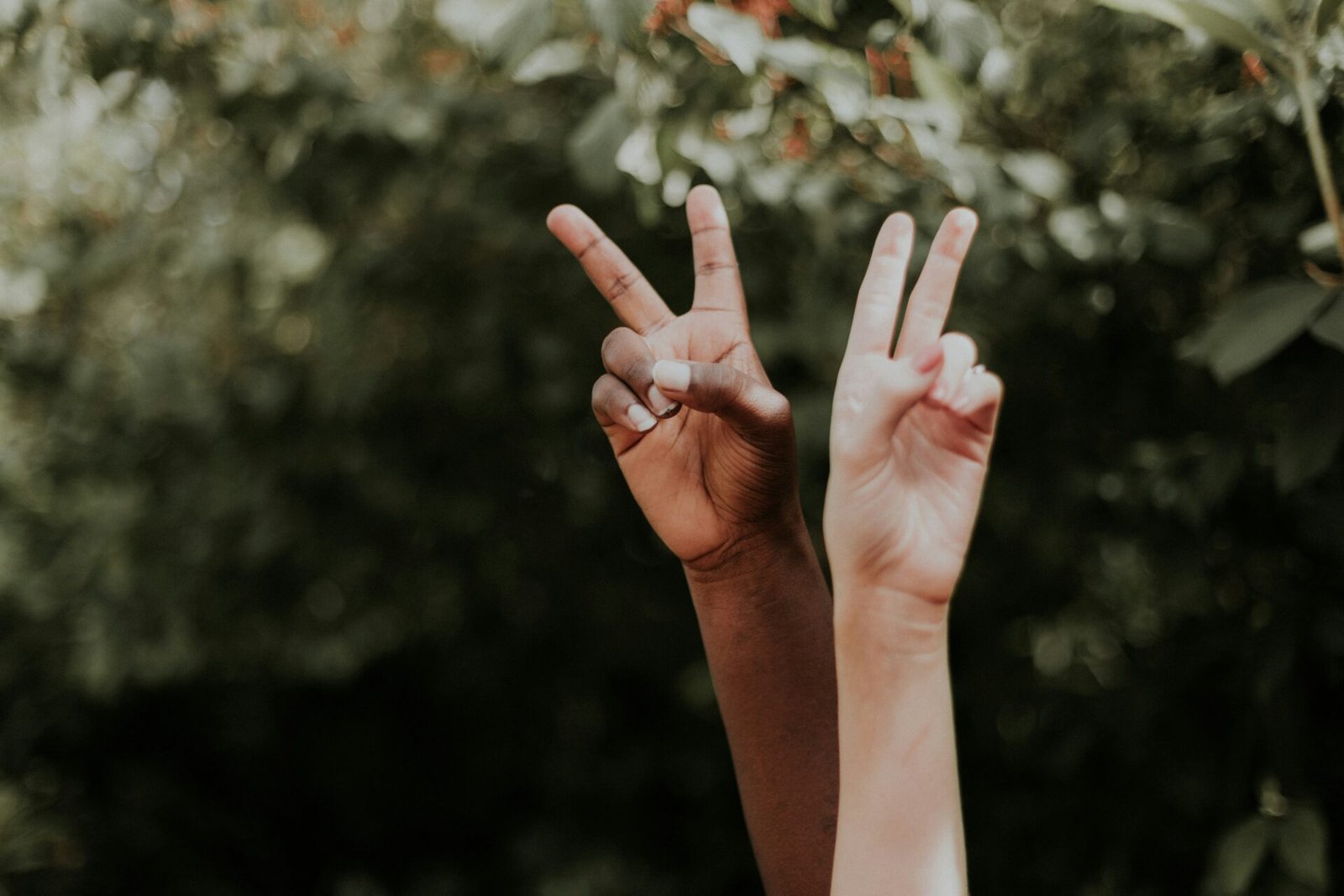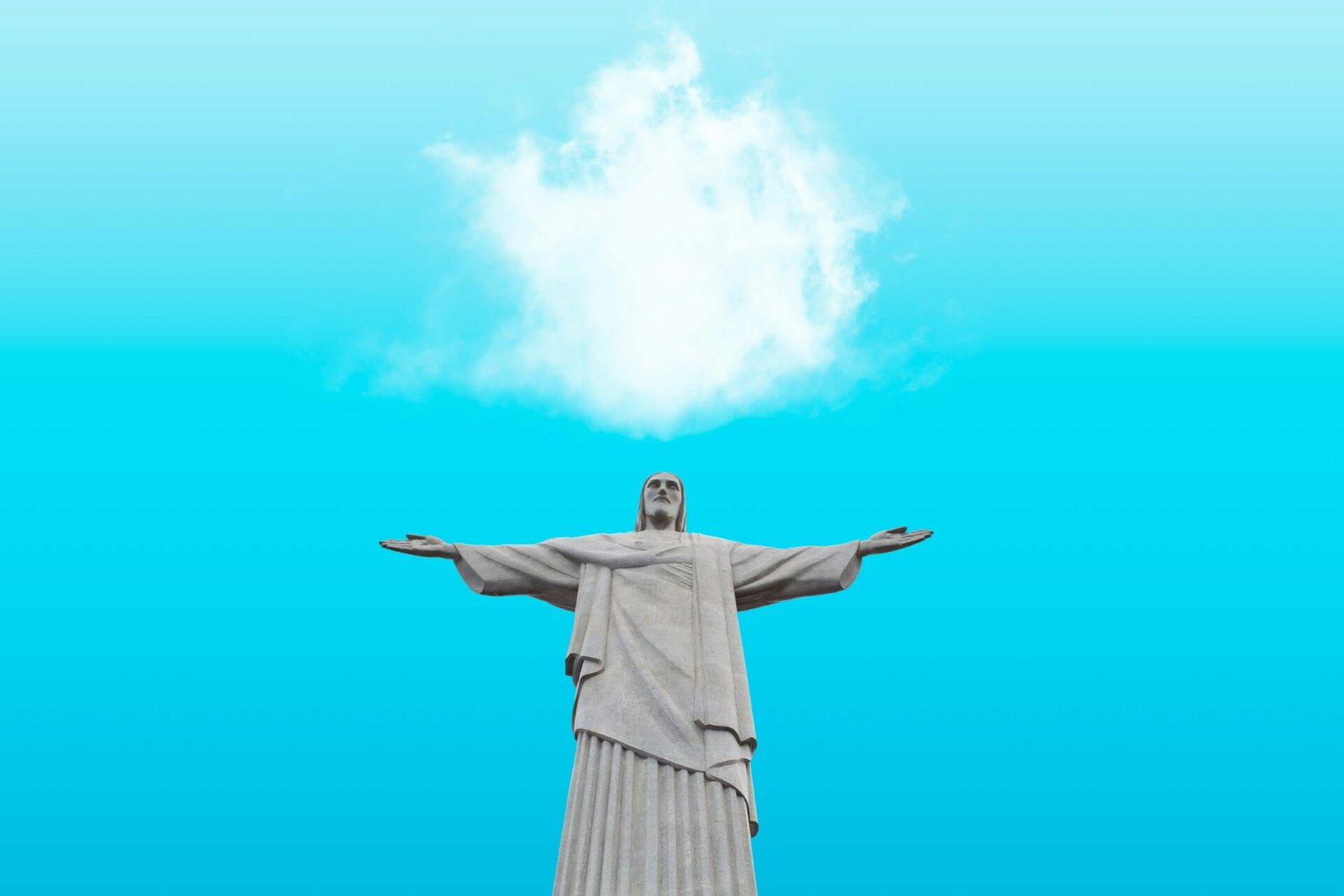I was going to write an article about artificial intelligence, but I got caught up on my very first sentence: we are in a transitional period. This phrase describes not just a time of change, but a fundamental civilizational shift in which we are simultaneously leaving behind the old paradigm of dominance and moving toward partnership. This transition spans all areas of life — technology, medicine, social structures, culture, and self-awareness. Our world can no longer function according to the old rules, prompting a rethinking of our foundational models of existence. I think we’ve all noticed the turbulence of our times: just like with personal crises — this one too signals a major transformation. And like any crisis — it feels painful.
From Dominance to Partnership: A New Societal Paradigm
The traditional model of society was built on hierarchies, where control and power were concentrated in the hands of a narrow elite. This approach prevailed in politics, economics, and even in interpersonal relationships. Yet today’s reality calls for a different model — one of partnership, built on trust, cooperation, and interaction. This shift marks a move away from authoritarianism and the monopoly of knowledge toward dialogue and collective responsibility. It arguably began with the advent of the Internet.
Tim Bernes-Lee
The person who created the World Wide Web is disillusioned with the results. Tim Berners-Lee dreamed of a decentralized platform for the free exchange of scientific knowledge, ideas, and information between people around the world — without hierarchies, restrictions, or commercial interests. Instead, power and control have once again concentrated in the hands of a few tech giants (Meta, Google, Amazon, etc.), who monopolize user data and create informational bubbles. Platforms today are more focused on profit maximization through algorithmic manipulation (what we see, read, buy) than on providing an open space for knowledge exchange. The web has become not only a space for knowledge but also for fake news, propaganda, trolling, and radicalization. Mass behavioral tracking has become the “new oil” for business. The network has taken on a life of its own — and yet, the Web was the beginning of something monumental.
AI
The paradigm shift is especially visible in our approach to technology — which, in fact, was to be the subject of this article, but that will have to wait for the next one. Artificial intelligence is no longer merely a tool for automation and replacing human labor, although memories of the industrial revolution awaken old traumas and fears — particularly of unemployment.
AI is becoming a partner — one that expands human capabilities, stimulates creativity, and helps solve complex problems. But this requires a new understanding of the relationship between humans and machines — one in which ethics and responsibility are key.
Yet this transition isn’t only about technology. It’s a paradigm shift across the board: from authoritarian structures to horizontal ones; from hierarchies of knowledge to networks of meaning; from either/or thinking to both/and (farewell, black-and-white perception!); from exploiting nature to learning to listen and respond to it.
The emergence of AI only underscores this turning point. We are no longer the center of the universe — but instead, we may become part of a complex, sensitive system of interaction. The question is no longer whether we can retain control, but whether we can be worthy partners in this new world.
What Else Is Changing: From–To
From Hierarchy to Interaction
Vertical structures are collapsing — in politics, education, family, and culture. We are no longer looking for an authority to tell us how to live, but for a space of dialogue, a horizontal community where everyone is heard. Scandinavian countries are already living this way.
From Control to Trust
Fear no longer works as a primary mechanism of governance. We are learning to live in a world where uncertainty is constant — and trust is not naïve but a conscious choice, without which forward movement is impossible.
From Stability to Adaptability
The last century believed in plans, systems, institutions. Today, what matters more is the ability to respond flexibly, to learn in the moment, to live amid constant change without guarantees.
From Fixed Identities to Processes
We are no longer “once and for all” someone. Identity has become an open project — more a journey than a label. We are learning to be in motion, to embody many selves at once — I feel this deeply myself, as I try to weave together all my identities and projects in one place and understand how they relate to each other and what to do with them next. Once, a profession defined a person: “teacher,” “doctor,” “seamstress.” Today, we increasingly cross those boundaries. I am a researcher, a mother, a facilitator, an author, and perhaps a barista on weekends. It’s a kind of renaissance — once, it was normal to be an artist, a mathematician, and a carpenter at the same time.
How Did We End Up in Narrow Specialization?
Industrialization (18th–19th centuries) led to the division of labor. In classical manufacturing, this was profitable: each person performed a small task — faster, cheaper, more efficiently. From being a versatile artisan — which most people once were, not just Leonardo — we became executors of fragments. This gave rise to a “functional” identity: I am not a whole creator, but “the one who sews on buttons.”
In the 19th century, the concept of specialization emerged. Distinct disciplines developed: biology, physics, philology — instead of “natural philosophy.” Universities (originally offering universal education) shifted to professional training: no longer to “develop the person,” but to produce a specialist. There was once a physician; now, there’s an otolaryngologist.
The bureaucratic state and modern education began demanding strict categories (student, engineer, housewife), systems, and record-keeping (grades, diplomas, CVs), all in service of the ideal of the standardized citizen.
Capitalism (20th century) required people who were predictable and productive: expertise became a commodity. Career paths, CVs, and specialization turned identity into capital. People began learning how to “sell” one part of themselves — a skill — rather than offering their wholeness.
From “expert” to whole person
The 20th century cultivated the image of the expert, while the multifaceted person came under suspicion: “a jack of all trades is a master of none.” Yet this contradicts human nature: we think in connections, not in silos.
With the digital age, freelancing, market crises, and the search for meaning, we are returning to interdisciplinarity, hybrid identities, and a respect for the integrity of life — not just for a single role.
Identity has become more like a spectrum than a binary. What once seemed fixed — like “being a woman” or “being a man” — is now a field of inquiry, self-discovery, and choice.
In this new space, we are learning not to “define ourselves once and for all,” but to remain open to change, inner movement, and new answers to old questions.
From Consumption to Consciousness
What we own matters less than why we own it. People seek meaning in the everyday — in food choices, lifestyle, and emotional contact with others.
From Linear Time to a Deeper Sense of Cycles
We are tired of endless striving. There is growing attention to rhythms, seasons, bodily experience, and the sense of life as an organic — not only productive, but also regenerative — process.
From Silence to Voice
Those who were unheard for decades, even centuries — women, children, colonized peoples, marginalized languages, and nature itself — are finally gaining a voice. This is not just about the right to speak — it’s also about a shift in the culture of listening. We are learning to listen without invalidating, justifying, or needing to respond immediately. In this process, a new ethic of mutuality arises: to have a voice is not to speak the loudest, but to be heard and to hear others. Sometimes this new voice sounds harsh or uncomfortable — because it was silenced for so long. But real dialogue grows through it.
From Competition to Cooperation
A world built on “survival of the fittest” increasingly needs collaboration. In business, ecology, and science — resilience comes not through victory, but through shared resources, ideas, and efforts.
From Rationality to Wholeness
The world can no longer be explained by logic alone. Interest is growing in intuition, emotional intelligence, embodied knowledge, and spiritual practices. We seek not just smart decisions, but wise ones.
From Mass to Unique
Where scale and standardization were once valued, now individuality, locality, craftsmanship, and authenticity take center stage. This is visible in fashion, food, design, education, and media. There’s a fear that AI will standardize everything — but that’s unlikely, because there’s no demand for sameness. We don’t want identical texts and images. AI is simply a tool to help implement ideas.
From Silent Agreement to Active Participation
People increasingly refuse to be “spectators” — in politics, education, art, relationships. Participation, engagement, and the right to a personal voice are becoming the norm.
From “I Against the World” to “I Am Part of the World”
This reflects a profound shift in worldview. Not control over the environment, but responsibility toward it. Not survival at others’ expense, but coexistence.
From Suffering as Norm to Care as a Value
Sacrifice was once idealized; now, the focus is on self-support, empathy, and care for others without losing oneself. In the transitional phase, the struggle for this often appears aggressive: “I have a right to my emotions!” It’s a state where the old ethics no longer work, and the new ones haven’t yet become the norm.
From “Work for Survival” to “Work for Fulfillment”
There is a growing demand for work that has meaning, brings satisfaction, and does not destroy life — neither your own nor the planet’s.
From Closedness to Vulnerability
Strength no longer means being impenetrable. The ability to admit mistakes, feelings, and limits is a new form of strength. This is especially evident in business ethics: a leader who speaks honestly, not from a pedestal; an employee who says “I’m struggling” without fear of being fired; a company that publicly admits a mistake and apologizes — we already demand and expect this.
In summary
Society is no longer just a battlefield for power and domination — it is becoming a space for cooperation and understanding. The role of the individual voice, collective responsibility, and dialogue is growing. Dictators sense this and howl like wolves, desperately trying to preserve the old order. This clash between the old and the new saturates the entire world today.
Our relationship with time and space is changing too. Linearity and rationality are giving way to cyclicality and multidimensionality, isolation — to interconnectedness. This shift opens the door to a new type of thinking — systemic, integrative, attentive to complexity and interdependence.
The idea of a world where people are equal, exchange ideas freely, and collaborate has been felt for a long time. But every idea needs to mature. What signals that this transition is happening now are existential crises (ecological, climatic, emotional), which expose the dominance model as toxic; communication technologies (the internet, open platforms), which enable horizontal exchange; psychological maturity (the rise of therapy, focus on trauma, empathy); and globalization, which makes interdependence obvious — isolation and control no longer work.



